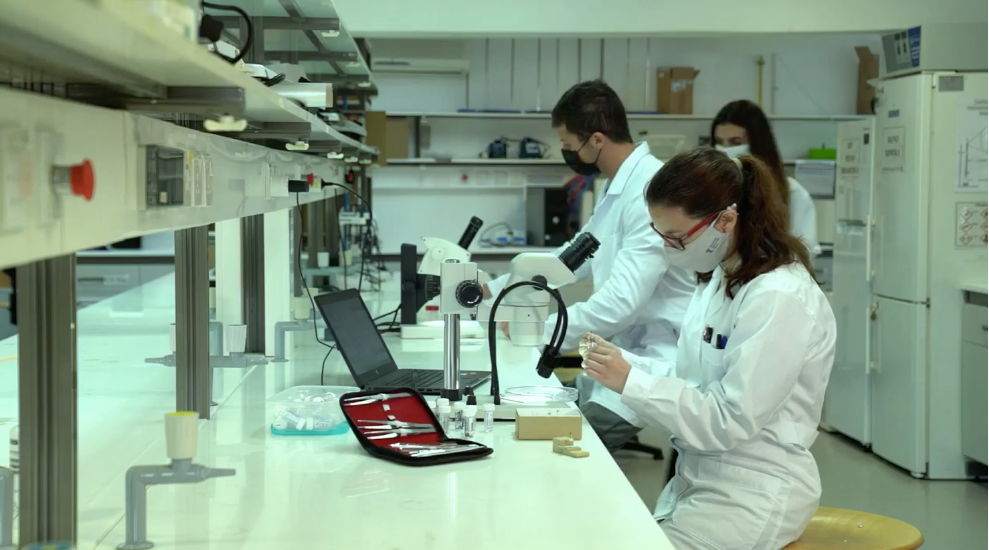To protect human and animal health on the island of Cyprus from harmful mosquito vectors, the Technical Committee on Health launched the “Identification and Distribution of Mosquito Vectors of Medical Importance on the island of Cyprus (ID-Vec)” project.
Combatting harmful mosquito vectors in Cyprus
January 25, 2022
“Promoting the protection of human health is at the core of the Technical Committees. Vectors that can transmit diseases need to be carefully monitored and controlled. This can only be achieved through concrete actions in which both communities collaborate and exchange experiences.” - Leonidas Phylactou, Co-Chair of the Technical Committee on Health
“Mosquito-borne diseases represent important health issues not only in Cyprus but also in the world. Cooperation is the only way this problem can be solved. This project provided an invaluable opportunity for island wide mosquito surveillance which will yield better control of vector-born diseases.” - Cenk Soydan, Co-Chair of the Technical Committee on Health
Taking into account the increased health risk of mosquitoes to humans and animals, the Technical Committee on Health launched the “Identification and Distribution of Mosquito Vectors of Medical Importance on the island of Cyprus (ID-Vec)” project, which was implemented over an 18-month period starting in January 2020. This project was funded by the European Union and carried out with the technical support of the United Nations Development Programme.
Through ID-Vec, the Technical Committee on Health aimed to first identify mosquito vectors both native and invasive to the island, focusing on regions at a higher risk for disease transmission. Other objectives of the project included mapping mosquito distribution, enhancing capacity building of Greek Cypriots and Turkish Cypriots in identifying mosquitoes of medical significance and increasing public awareness on protection measures against mosquito bites.
Within the scope of the project, the Technical Committee procured mosquito surveillance equipment, and formed a technical team consisting of scientists, biological / environmental science technicians and a quality control / quality assurance expert scientist. Field work was conducted surveilling every stage of a mosquito’s lifespan. In total, 124 sampling sites for egg, larvae and adult mosquitoes were selected. The data collected was analyzed in a laboratory, conducting morphological and molecular identification. A database was created for the project's continuity where easily accessible and comparable data was stored, allowing for the standardization of the process (GCC data and TCC data). Training and education materials were developed to increase public awareness.
The results and outputs of the ID-Vec project include:
- The establishment of a mosquito surveillance scheme for the first time at an island-wide level, which is a common concern of Greek Cypriots and Turkish Cypriots as well as crucial in controlling mosquito populations and protecting public health.
- The development of educational materials and a layperson report with the key findings of ID-Vec.
- The organization of two virtual training courses with a total of 50 participants. These include protocols for surveillance, preserving samples, data collection and management, morphological and molecular ID, etc. The training materials can be downloaded here: Mosquito surveillance and control in Greek / in Turkish, Morphological characteristics of mosquitoes in Greek / in Turkish.
- The production of a video emphasizing the importance of collaboration to achieve common health protection and environmental goals, and the importance of mosquito surveillance in mosquito borne disease prevention. The video is available in the English, Greek and Turkish languages.
- The development of a leaflet focusing on self-protection measures against mosquito bites, covering information on how the public can prevent mosquitoes from entering their homes and how they can minimize breeding sites at their residences. The leaflet can be downloaded here: English, Greek, Turkish.
- The organization of a public closing event where main results and findings of the project have been shared with more than 70 participants. The closing event slides can be downloaded here.
Throughout the process, standard protocols and procedures in line with the World Health Organization and European Centre for Disease Prevention and Control directives were developed and implemented.
This action of the Technical Committee on Health is supported by the "Technical Committees Support Facility" Project, funded by the European Union and implemented by UNDP in coordination with OSASG-Cyprus.

 Locations
Locations





